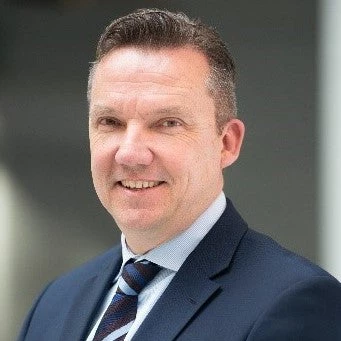 Girls in science class
Girls in science class
The global fight for gender equality rages on. Women and girls around the world still face many barriers to equal rights and opportunities. But we know that a world with equal opportunity for all is not only a matter of fairness and justice, it is also essential for sustainable development .
This year’s International Women’s Day focuses on investing in women’s education and health and improved access to digital technology to accelerate global progress on achieving gender equality. This directly aligns with the vision and track record of the World Bank’s International Development Association (IDA), which serves 75 countries with a focus on the poorest people.
As the proud father of three strong women and the product of many powerful women around and before me, I’ve seen firsthand how women can be the backbones of families and communities. They have remarkable impacts in the workplace and in societies as leaders when given the opportunity. The rights-based and moral arguments for gender equality are easy to see and understand, but there is also strong economic evidence for gender equality.
It is clear that when girls and women are fully included in societies, economies prosper. We can’t have sustainable economic growth without women’s empowerment and inclusion. This is why IDA's investments focus on this crucial need for removing barriers. Be it increased service delivery or the participation of women and girls in decision-making processes, IDA is supporting steady progress on gender equality—while keenly aware that much more remains to be done.
In the fiscal year ending in June 2023 (FY23), IDA delivered strong outcomes for women and girls through projects across all sectors. In Ethiopia, for instance, over 900,000 poor households in drought-prone communities received social benefits in electronic accounts, 43 percent of which are owned and operated by women.
Over half, 54 percent, of the recipients of IDA-supported social safety nets and 67 percent of the beneficiaries of essential health, nutrition, and population services in FY23 were women. One powerful example is in Mozambique, a country battling the pressures of climate change, conflict, and widespread gender-based violence. Here, an IDA project addresses social protection and jobs for girls, women, and youth. Nearly half a million girls are supported with incentives to get formal education and life skills training.
IDA’s fragility, conflict and violence efforts meanwhile support women and girls who are doubly vulnerable. For example, in Bangladesh, 35 women-friendly spaces have seen over 800,000 visits by refugee Rohingya women and girls. These spaces provide services on sexual and reproductive health, along with access to support for the prevention of gender-based violence.
We are also putting more cash directly into the hands of women to help them take control of their and their families’ economic destinies. These cash transfer programs have helped more than 973,000 families and sent livelihood packages, including, life and business skills training, mentorship, and support through savings groups, to 75,000 women.
The IDA-gender story would be incomplete without also highlighting the milestone Sahel Women's Empowerment and Demographic Dividend (SWEDD) project, which has resulted in success stories across sectors and countries. Launched in 2015 in Benin, Burkina Faso, Chad, Cote d’Ivoire, Mali, Mauritania, and Niger, SWEDD empowers women and adolescent girls through improving their access to quality education and reproductive, child, and maternal health services. Almost a million girls and young women have benefitted from the project. SWEDD also goes behind closed doors to affect policy change, having strengthened legal frameworks and institutional capacity on gender policy, budgeting, and programming.
While the immediate impacts may be impressive, longer-term challenges do remain. The World Bank’s recently launched Women, Business, and the Law report shows that not only do women globally continue to have fewer legal rights than men, but that weak implementation of gender equality laws is exacerbating gender gaps.
That’s why IDA’s commitment to gender equality is unwavering. Our approach to this work has evolved over time, including by better monitoring of outcomes, integrating gender analysis and programming into country strategies, improving the collection of sex-disaggregated data, and new efforts to address gaps in fragile and conflict-affected situations. We will continue to do more and do better, aided by the soon-to-be-launched new World Bank corporate scorecard, which will allow better tracking of gender-disaggregated outcome indicators.
The upcoming World Bank Group Gender Strategy (2024-2030) also raises our ambition to accelerate gender equality to end poverty on a livable planet, with a focus on innovation, financing, and collective action. The strategy sets out to end gender-based violence and elevate human capital; expand and enable economic opportunities for women; and engage more women as leaders. IDA will play a key role in driving progress toward these goals.
The economic cost of gender disparities is a serious threat to development. We are committed to doing everything we can to foster women’s rights and to empower women so that they can take a more active role in global growth. An ambitious IDA21 replenishment will be essential for breaking down major barriers, advancing women’s economic empowerment, and effectively sparking economic growth and social resilience across IDA countries. We don’t have time to waste.
Related:
More and better jobs: Unlocking the potential of South Asia’s women


Join the Conversation